
Rice’s Ken Kennedy Institute names David Pynadath new executive director for research initiatives
The Ken Kennedy Institute at Rice University has named David Pynadath as its new executive director for research initiatives.

Rice’s Ken Kennedy Institute names David Pynadath new executive director for research initiatives
The Ken Kennedy Institute at Rice University has named David Pynadath as its new executive director for research initiatives.

Rice-led research will leverage responsible AI to enhance coastal communities’ severe storm response
A team of Rice engineers and partners won a $1.5 million NSF award for a project that leverages responsible AI to enhance emergency response to coastal compound hazard events.
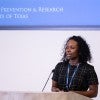
Research institute representative highlights Texas’ collaborative efforts with Rice in cancer battle
Abria Magee, senior program manager for the Cancer Prevention and Research Institute of Texas, gave an overview of the agency’s efforts to fuel innovation in cancer research and drive advancements in prevention and cures at the recent AI in Health Conference hosted by Rice’s Ken Kennedy Institute.

Rice partners with BeOne Sports to transform athlete performance with AI technology
Rice’s Athletics Department and Office of Innovation have formed a strategic partnership with BeOne Sports, an innovative startup founded by Rice alumni that is pioneering advanced sports performance technology.
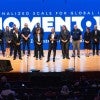
Momentous: Personalized Scale for Global Impact: Rice unveils new strategic plan
Under the leadership of President Reginald DesRoches, Rice has unveiled a new strategic plan to become the world’s premier teaching and research university by delivering unparalleled personalized education and propelling breakthrough discoveries to transform lives and better humanity. Momentous: Personalized Scale for Global Impact serves as a road map for the next decade and reflects the collective contributions of the entire Rice community, capitalizing on the university’s size as a competitive advantage.

Rice’s school of engineering changes its name to reflect excellence in computing
Rice’s school of engineering has officially changed its name to the George R. Brown School of Engineering and Computing.
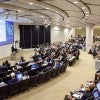
Ken Kennedy Institute’s annual conference informs the future of AI in health innovation
Rice’s Ken Kennedy Institute hosted the third annual AI in Health Conference Sept. 9-12, welcoming over 470 participants to Houston to explore the latest advancements in artificial intelligence.

Rice research could make weird AI images a thing of the past
Rice computer scientists have developed a way to improve the performance of artificial intelligence diffusion models.

Annual Rice event explores AI innovation in health care
Rice’s Ken Kennedy Institute is hosting the third annual AI in Health Conference Sept. 9-12 with themes this year including foundation models in medicine, LLM applications, AI in neuroscience and neurotechnology, digital twins in health care and patient engagement and equity in health AI.

Rice’s Ashutosh Sabharwal will lead a research project dedicated to the design and development of a modular platform for wireless networking, imaging and sensing that will significantly expand research capabilities and catalyze innovation in support of 6G wireless.
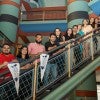
Brazilian students explore AI and infrastructure resiliency at Rice amid Hurricane Beryl
A group of undergraduate students and faculty from Brazil spent a week at Rice exploring the role of artificial intelligence (AI) in sustainability and natural disaster resiliency practices as part of a knowledge and cultural exchange program funded through the 100,000 Strong in the Americas initiative.
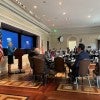
Rice’s Fred Oswald participates in US Department of Education event on AI in postsecondary education
Oswald attended the daylong event alongside artificial intelligence (AI) innovators from academic institutions throughout the U.S.

Rice’s Jamie Padgett wins Charles Martin Duke Lifeline Earthquake Engineering Award
Rice’s Jamie Padgett has been awarded the 2024 Charles Martin Duke Lifeline Earthquake Engineering Award from the American Society of Civil Engineers.

Rice’s Fred Oswald named incoming editor for Psychological Methods journal
Fred Oswald, the Herbert S. Autrey Professor of Psychological Sciences and chair in social sciences at Rice, has been named incoming editor for Psychological Methods, a top journal in the field.
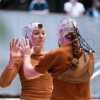
Houston researchers’ blend of neuroscience, dance gains attention of United Nations
A groundbreaking artistic collaboration between Rice University, the University of Houston (UH) and Sam Houston State University will be featured at the United Nations’ AI for Good global summit in Geneva May 31.